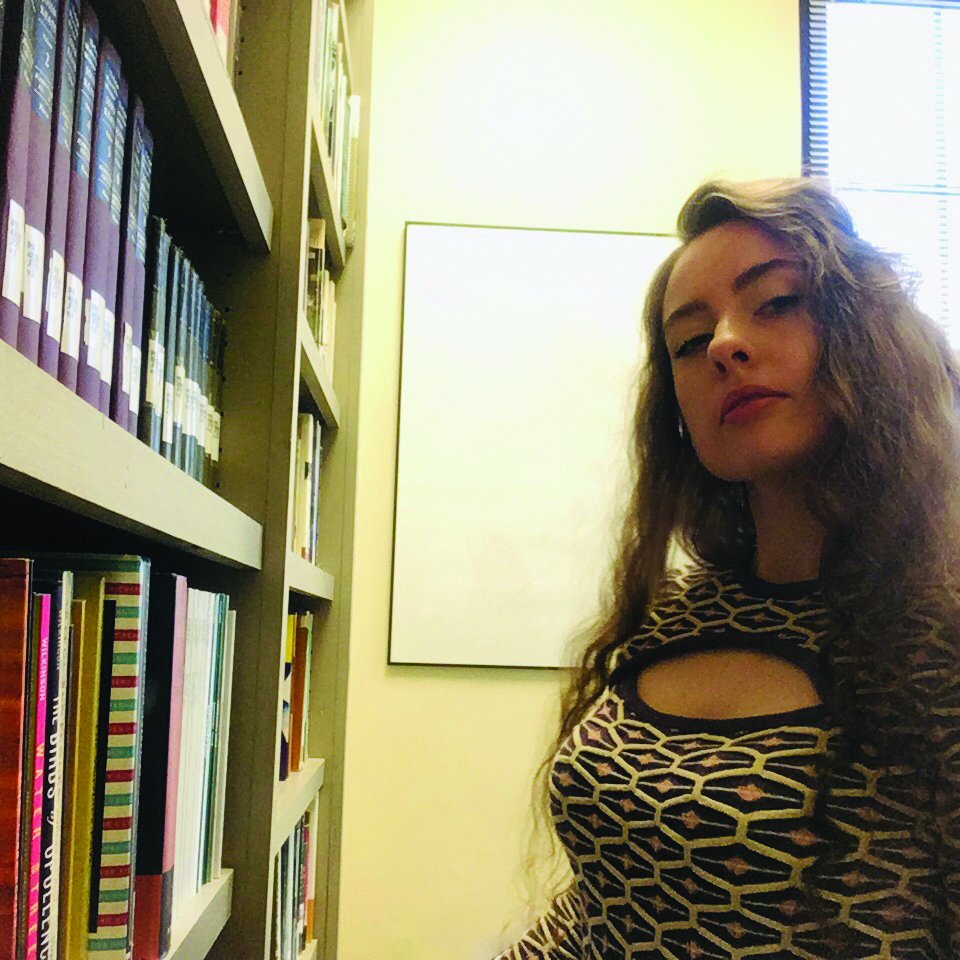

Candace Butler
Candace Butler is a poet, songwriter and designer from Sugar Grove, Virginia, and teaches adjunct courses in design at Emory & Henry College and King University. She holds an MFA in creative writing from Antioch University of Los Angeles. Butler is editor-in-chief of Wild Leek Press, an independent literary press with a focus on design and letterpress, and an adjunct professor. Butler has two chapbooks of poetry: “Royal Crown” and “Nothing Is So Lovely.” She loves spending time with family, creating music, designing, traveling and seeking the beauty in the world.
A! Mag: Do you remember the first poem you wrote? If so, tell us about it and why you wrote it.
Butler: The first poems I wrote were all lyrical.
A! Mag: How did you get interested in writing poetry?
Butler: The power of song, the power of words, to comfort, to heal, to state a simple truth—the ability for a collection of sounds to mean more collectively than their individual parts—has fascinated me for longer than I can remember.
A! Mag: What subjects are inspiration for your poetry?
Butler: The beauty of the common, the everyday, the small moments—how they ask for connection. My upbringing in Appalachia with the beauty of the mountains, family and traditions here are an unmistakable influence on my work.
A! Mag: What poetic forms do you tend to use?
Butler: I’ve always been intrigued by form, with its heavy emphasis on tradition and structure. And recently I’ve been drawn to the contrapuntal form, which borrows from music the idea of combining two separate voices into one. A contrapuntal poem consists of two independent poems set side-by-side with visual space between them: we can read one side or the other, or both together. What I love about this is that there are really three poems in one movement: the two separate poems can exist separately, collapsing into their own singular agendas. In music, a contrapuntal motion contains notes that rise and fall together, keeping the same interval, or distance. Or the notes may move closer and farther away from one another on the scale. One reason the contrapuntal form works so well in poetry is because it is infused with the progression, harmonic balance and duality of its musical counterpart.
My poem “The Kiss” is that way; it’s an imagining—well, it’s also an ekphrasis poem since it is inspired by Gustav Klimt’s painting of the same name—but it is an imagining of two people, each of which can stand independently in their own beauty, but when combined become so much more—there is a certain juxtaposition, a push and pull, a sort of added beauty to the balance of the two combined.
A! Mag: What poets serve as inspiration?
Butler: Lately I’ve been reading Maya Angelou, Lucille Clifton, Louise Glück, Leatha Kendrick and Tyehimba Jess.
A! Mag: What is the importance of poetry in our world today?
Butler: I’m a firm believer that art builds communities. Like all artforms, poetry has a way of deepening our understanding of ourselves and the world around us, allowing us to have a deeper sense of empathy and appreciation.
A! Mag: What are some publications where your poetry can be found?
Butler: My poetry appears in print and online journals and anthologies, including Still: The Journal, The Pikeville Review, One and more. A full list can be found on my website www.candacebutler.com/publications.
The Kiss
the points at which we bend, knees buried in soft grass
the wrist, elbow, index, toes curled, eyes closed, hair dancing
the points of all those rectangles, in circles down her back,
gold streams run past his neck, trickling past her calves,
past points of jaw and cheek and nose, past flowers blooming ‘round
past hands firm with intent to frame her orchid cheeks,
to press soft lips to skin-- that skin to feel soft lips,
a sigh of the west wind, a primavera pink.
sky full of golden flecks falling on the cliff’s patched thigh,
a wide and painted meadow forelsket fresh in the breeze
reds, greens, and ultraviolets now rippling up her side
against his gold and monochrome, over fabric so delicate, so free
with lips still touching petal skin-- oh! to recall the feeling first
years of living leave the mind and these small moments last.
“The Kiss” has previously appeared in the following journals:
Kind of a Hurricane Press, “In Gilded Frame Anthology,” 2013
“Anthology of Appalachian Writers, Nikki Giovanni Volume VIII,” 2016
Reprinted with permission